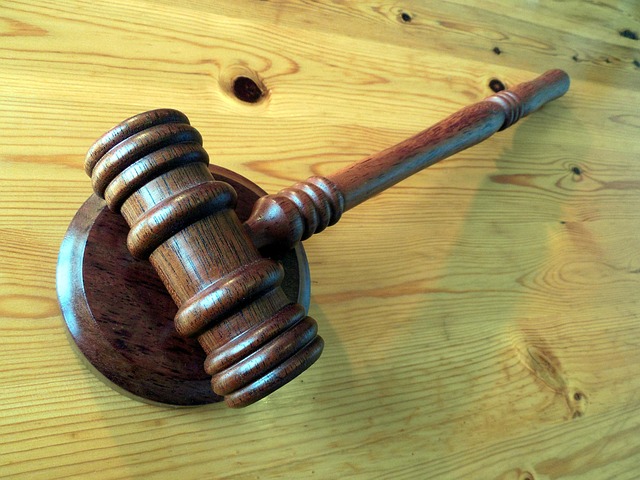Understanding appeal denials in finance crime cases is crucial. Common reasons include insufficient evidence, procedural errors, and strategic failures. Meticulous record-keeping, proper evidence handling, adherence to deadlines, and robust legal arguments are key to navigating these denials, ensuring justice and successful defenses.
In the intricate world of finance crime investigations, understanding the appeal denial process is paramount. This article delves into the intricacies of navigating legal complexities and common errors that often lead to denials. We explore evidence handling, emphasizing its critical role in outcomes. Timely submission stands as a crucial factor, influencing success rates significantly. Furthermore, we provide strategies to overcome denials, shedding light on the Common Reasons for Appeal Denial and offering valuable insights for professionals navigating this challenging landscape.
- Understanding Appeal Denial Process
- Common Legal Errors in Finance Crimes
- Evidence Handling and Its Impact
- Timely Submission: A Crucial Factor
- Strategies for Overcoming Denials
Understanding Appeal Denial Process
Understanding the appeal denial process is crucial for anyone involved in finance crime investigations. When an individual or entity appeals a financial crime conviction, they are essentially requesting a review of their case by a higher authority. However, many appeals are denied due to various reasons that reflect an unprecedented track record of procedural compliance and fairness across the country. Common Reasons for Appeal Denial include insufficient evidence, procedural errors not affecting the outcome, and strategic failures in presenting the defense.
Navigating the appeal process requires meticulous attention to detail and a deep understanding of legal precedents. Prosecutors often aim to avoid indictment by presenting strong evidence and ensuring that all procedures are followed meticulously from the initial investigation to the trial. While appeals offer a chance for review, they are not guarantees of reversal. It is essential to recognize that the system is designed to uphold justice, even if it sometimes results in denials, ensuring that financial crimes are addressed with fairness and integrity.
Common Legal Errors in Finance Crimes
In finance crime probes, understanding common legal errors is paramount to ensuring a robust defense strategy. One of the primary pitfalls involves insufficient evidence presentation, where prosecutors may fail to provide concrete links between suspected criminal activities and the accused individual or entity. This often stems from poor case preparation, leading to gaping holes in the prosecution’s narrative during trial. Another frequent mistake is misinterpreting or ignoring relevant laws and regulations, which can significantly weaken a case. For instance, failing to consider the nuances of financial reporting standards or regulatory requirements may result in charges being dropped due to procedural errors.
Moreover, common reasons for appeal denial often stem from these initial legal lapses. When defendants are convicted despite these oversights, appeals may be denied for lack of meritorious argumentation. To mitigate such risks, it’s crucial to maintain meticulous records throughout all stages of the investigative and enforcement process, ensuring transparency and adherence to legal protocols. Avoiding indictment starts with preventive measures like meticulous record-keeping and due diligence, which can protect both individuals and philanthropic and political communities from unfounded accusations.
Evidence Handling and Its Impact
Proper evidence handling is paramount in finance crime probes, as it significantly influences the outcome of investigations and subsequent legal proceedings. Mistakes or irregularities in managing and presenting evidence can lead to common reasons for appeal denial, hindering the pursuit of justice. For instance, inadmissible or tampered evidence may weaken a case, resulting in favorable outcomes for those sought to be indicted.
In high-stakes cases involving corporate and individual clients, meticulous care is required to ensure the integrity of evidence. Avoiding indictment hinges on robust protocols for document preservation, secure storage, and precise chain-of-custody tracking. These measures safeguard the reliability of evidence, ensuring its admissibility in court and increasing the likelihood of successful prosecutions.
Timely Submission: A Crucial Factor
In finance crime probes, timely submission plays a pivotal role, often being a crucial factor in the outcome of an appeal. Many cases are marred by delays that can lead to a complete dismissal of all charges, especially when prosecutors or judges find merit in the appellant’s arguments. Common Reasons for Appeal Denial include procedural lapses, such as missing deadlines, which weaken the defendant’s case significantly. For his clients, ensuring timely submission of appeals is paramount in navigating the complex legal landscape of general criminal defense.
Proper documentation and adherence to judicial timelines are essential components of a successful appeal strategy. Failure to submit required forms or meet court-mandated deadlines can result in a bar on further review, hindering efforts to challenge convictions or reduce sentences. As such, those involved in finance crime probes must prioritize timely submission to increase the likelihood of a favorable outcome and protect their legal rights.
Strategies for Overcoming Denials
In finance crime probes, one of the common hurdles investigators face is the accused’s denial. Understanding the common reasons for appeal denial is key to overcoming this obstacle. Often, denials stem from a lack of transparency or an attempt to mislead investigators, relying on legal loopholes or downplaying the severity of the alleged crime. An unprecedented track record of achieving extraordinary results in similar cases can help build a compelling argument against these denials.
Strategically presenting evidence and expert testimony can significantly impact the outcome. Demonstrating an ability to navigate complex financial crimes and secure winning challenging defense verdicts is crucial. By employing thorough investigations, meticulous documentation, and strong legal arguments, investigators can overcome initial denials and present a robust case, ultimately ensuring justice is served.
In navigating finance crime probes, understanding the appeal denial process is key. By recognizing common legal errors, such as inadequate evidence handling and procedural mistakes, you can proactively improve your chances of a successful appeal. Timely submission remains a crucial factor, underscoring the importance of efficient case management. Implementing effective strategies to overcome denials, including thorough documentation and adherence to legal guidelines, can significantly enhance your outcome in these complex investigations. Remember that knowing the common reasons for appeal denial is the first step towards a robust defense strategy.






